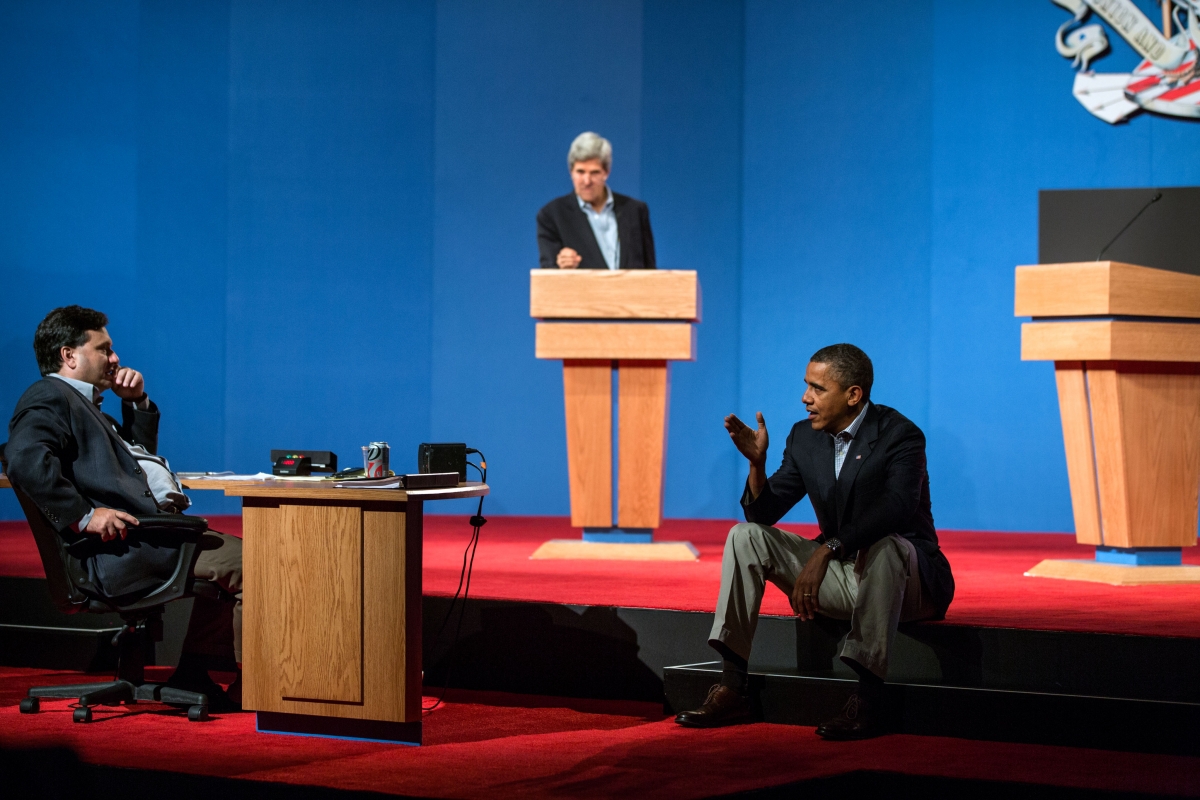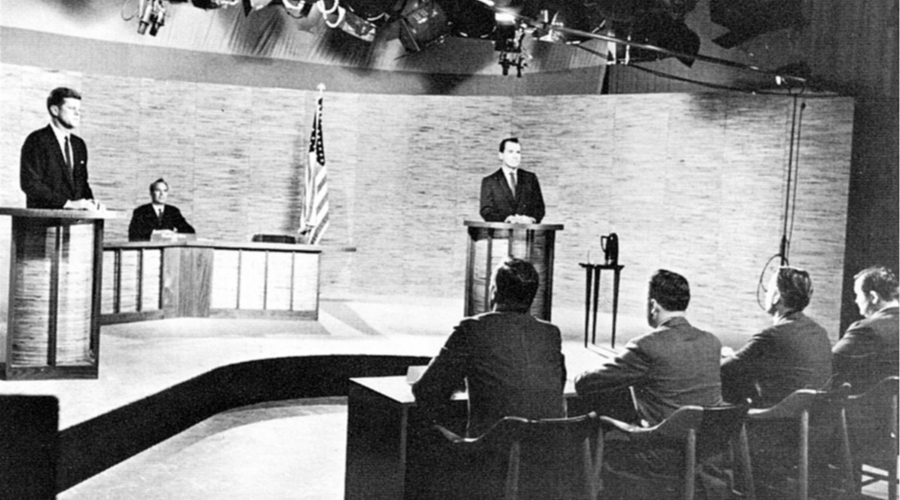With just 56 days to go before the UK goes to the polls in what could be the closest-run general election in decades, the final plans for televised leaders' debates are far from certain. Labour leader Ed Miliband has said he'd make them compulsory if he became prime minister, while our current premier insisted he'll only make one appearance. As broadcasters come under fire for playing politics, Alastair Ballantyne takes a look at the deal on the other side of the Atlantic…
The presidential debate is thoroughly engrained in the election campaign process in the United States. Since Kennedy first faced off against Nixon in 1960, presidential clashes have become a crucial part of their elections.
A combination of Lyndon B. Johnson ruling out the debates in 1964 and the Federal Communications Commission wanting the inclusion of fringe party nominees meant that the debates didn’t take place again until 1976. However, since 1976 they have taken place at every single presidential race to this day.

Presidential debates are not part of the US constitution. Democrats and Republicans set up the Commission on Presidential Debates (CPD) in 1987 to represent both parties.
The organisation continues to set up the televised presidential face off on a bipartisan basis with the American networks. The system makes sure a single body deals with broadcasters to allow the debates to go ahead.
The format of three presidential head-to-heads and one vice presidential debate has been the structure since 2000. The simplicity of their two party system makes sure that election after election, the format stays the same.
While this works well in the States, many feel such a format would struggle in the UK. Critics saying the system wouldn't let a third party stand a chance, and a body that represented the Labour and Conservative parties could be controversial.
Although a House of Lords committee looked into the advantages of the CPD in 2014, they were sceptical about the idea of a separate body. There were also concerns that it wouldn't fit the current British legal system.
By Alastair Ballantyne

